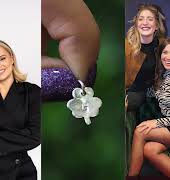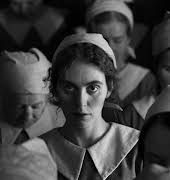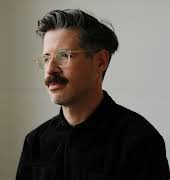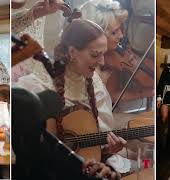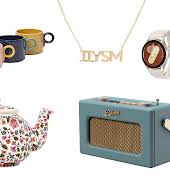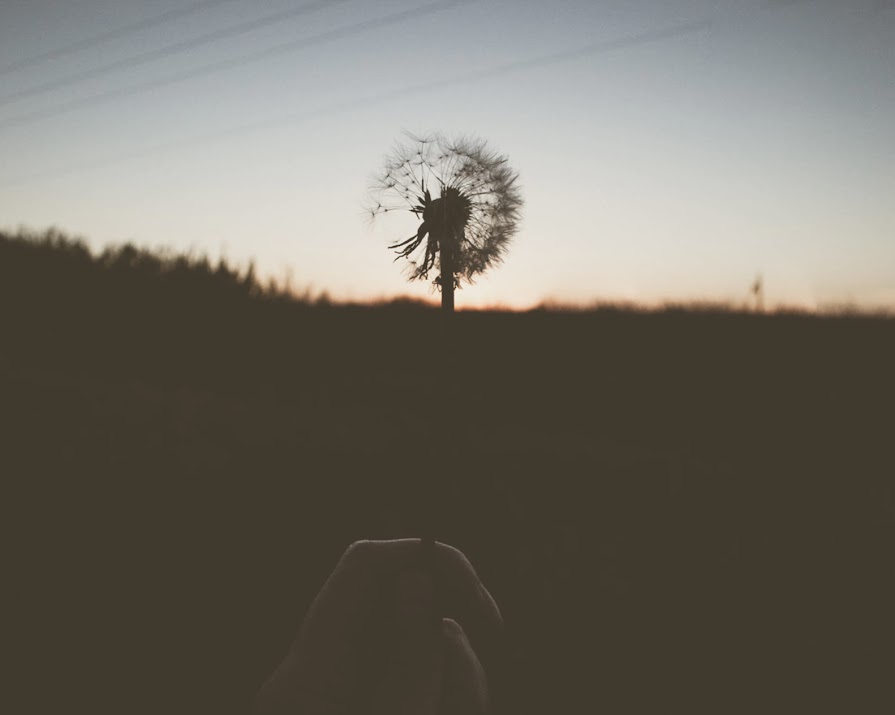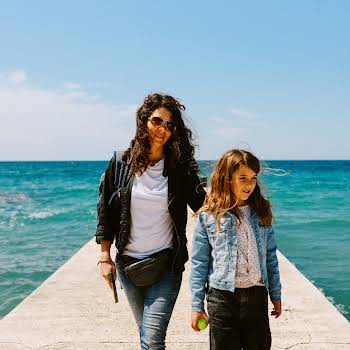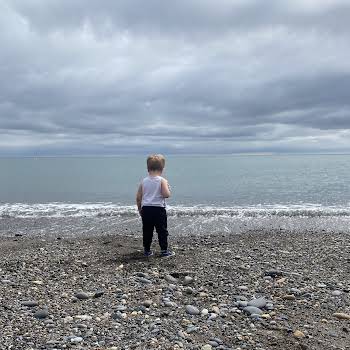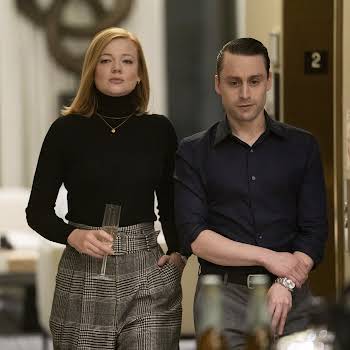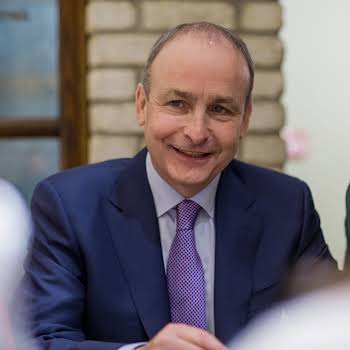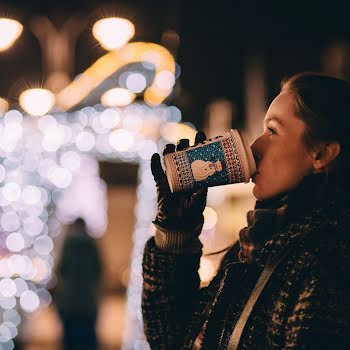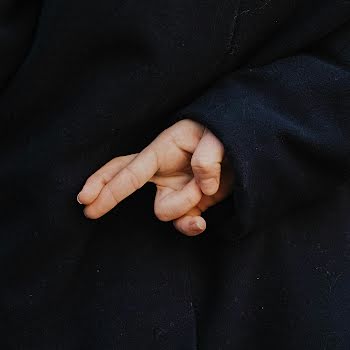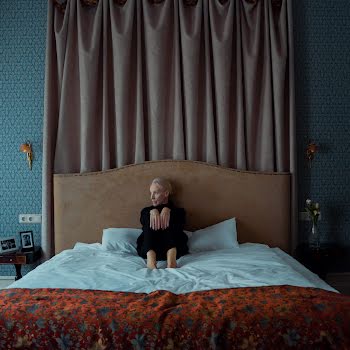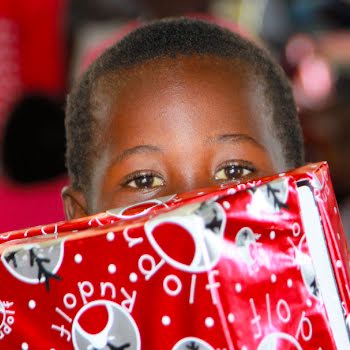
‘Our whole lives it’s been us three sisters. Now one was dying. Now there’d only be two’
By Amanda Cassidy
04th Aug 2023
04th Aug 2023
Canada-based Sarah Jane's sister died from a rare blood cancer two years ago. She speaks to Amanda Cassidy about the unusual turn her grief has taken.
Elizabeth was just 48 and a mother of a 14 year old son when she passed away in 2021. In this moving essay which she chose to write, her sister describes how blindsided the family was when she got her diagnosis.
“I live in Canada, in a small duplex twenty minutes from the sea, twenty minutes from the mountains. I’d been living there for ten years when everything started with Lizzy. It was not unusual for us to talk every day. She worked in a creche and loved spending all that time with the children but she was more tired than usual. She blamed the menopause, being the mother of a teen, hormones, not having fully recovered from an episode of covid. Could it be long covid, she wondered aloud on the phone as thousands of miles away, I painted my backyard shed blue.
It was only when our other sister called me one evening to say she was worried about Lizzy. She’d lost a lot of weight, she told me, and an icy feeling gripped my heart and to be honest, has never left since. A doctors appointment turned into a consultant referral. Scans, blood tests, and then the usual drip-feed of communication. It’s Probably Nothing changed into There May Be Something. Then it was More Tests Needed.
Advertisement
I sometimes think doctors do this on purpose to let you get used to the idea of what might be coming.
It was a sunny day in September when my oldest sister suggested I come home. The news isn’t good SJ, she admitted and the icy feeling blew colder. I was lucky enough that I am freelance so I took some time and travelled home. It had been too long. I remember the grey Irishy light as we landed, no other colour found anywhere else on earth. My sister’s face was a similar shade as she greeted me, all shadows. I bit back tears to see how diminished she seemed.
I sometimes think in colour. I’m an artist, a graphic designer used to assigning colours to feelings, to brands to ideas…Our Lizzy was the bright yellow of a daffodil. Everyone loved her is such an obvious thing to say when something bad happens to someone you love, but they loved Lizzy. She was generous with her time, curious about the world and a few days later, that same curiosity shone through after we spoke with her consultant together about her treatment. In a small voice she asked questions that broke my heart. She wrote the answers neatly in her notebook, like a recipe. The ingredients required to survive.
Our whole lives it’s been us three sisters. People knew us as this. We were friends. Not the best of friends. We fought, of course. But enough that we relied on each other implicitly. Nobody understood each other more than us three.
And now one of us was dying. Now there’d only be two.
But before all of that, we psyched ourselves up for the great game of hope and optimism. The doctors had been gentle with their miserable words but everyone thinks they’ll be the ones that will fight harder…that will beat this thing.
Advertisement
This thing. That’s what we kept calling it. Like it was an enemy, an intruder, a predator. In fact, it was just part of Lizzy that had randomly malfunctioned, possibly years before. This thing had taken hold. We needed solutions, we told ourselves as we talked late into the evening, Lizzy, shellshocked and wild-eyed. My older sister was pragmatic and bullish. I was realistic and petrified.
We tried so hard to stop this thing that was slowly killing our sister. On the 15th of February, we brought her home to our parents house in Sligo when it was clear they’d done all they could. My dad lives there with his partner and we all moved in. Lizzy’s palliative care bed was placed in the front room, a view of all the town’s coming and goings. Still she shone bright yellow.
We did her nails and took turns hanging out, playing music, looking at old photos. Everyone deals with things in their own way and Lizzy never acknowledged she was going to die. Except once when she whispered to me that she was scared. I squeezed her hand. What could I say except that I loved her?
The nurses, the amazing, amazing nurses joked with her and kept us sane. Different energies in different rooms. Her son remained silent, a haunted look replacing the sullen teenage curl we’d gotten used to. Then one morning, the nicest nurse nodded and said it was “probably soon”. Lizzy had been sleeping a lot, she seemed peaceful. We each took some time in the room with her and said what we needed to say.
But she hung on another two days. Lizzy, whose light had never dimmed even in the face of the grimmest news. She’d never expressed anger or self-pity, only fear and finally an elegant sort of acceptance.
She took her final breath and my sister was gone. Outside in the front garden the daffodils swayed stubbornly on.
Advertisement
For a long time we sat with her, around her, talking about her. But my grief was stuck in the process. Later, I was told it was common to fixate on the physical aspect of death. I wanted to know exactly how death had happened. Was it the cancer that had killed her or had it caused her organs to fail which had killed her? The granular details suddenly seemed so important somehow.
Does it really matter, SJ? My dad and sister asked over the next few weeks as we rallied around trying to disassemble the lovely life Lizzy had built. But the truth is that it did matter to me.
A friend who works on a cancer ward in the UK suggested I speak to one of her colleagues. With her it would have been too emotional, too personal.
So I spent an hour on the phone asking in-depth clinical questions about digestion and breathing and brain stem activity and the process of dying. It felt so crude and strange. But it also felt necessary. When I ran out of questions I looked up articles about the afterlife and read books about near-death experiences and consciousness.
Then I realised why.
I was doing it to try to share something with the sister I’d shared a lifetime with. We’d shared parents and clothes and a hairdryer, a bed for a bit. We’d both shared a kiss with Ian Emmet, the boy down the road when we were teenagers. We’d shared schoolbooks and hairbands and our mutual dislike for goats cheese. Now I somehow wanted to get a glimpse of what she’d gone through.
Advertisement
Before I went back to my own life in Canada for good, I spent a lot of time with Lizzy’s son. We all did. But it was out one day when we’d been for dinner that he turned and looked at me after I said something random, and the expression on his face was pure Lizzy; the lift of his eyebrow, the funny lopsided smile.
Energy goes somewhere, one of my zen articles had explained. And now, that’s what now brings me comfort. That Lizzy isn’t totally gone from my world. I have her son, I have our memories, I have the sun warm on my face on days where my heart feels especially cold.”
With thanks to SJ for sharing her story with IMAGE.ie
This article was originally published in March 2023.


